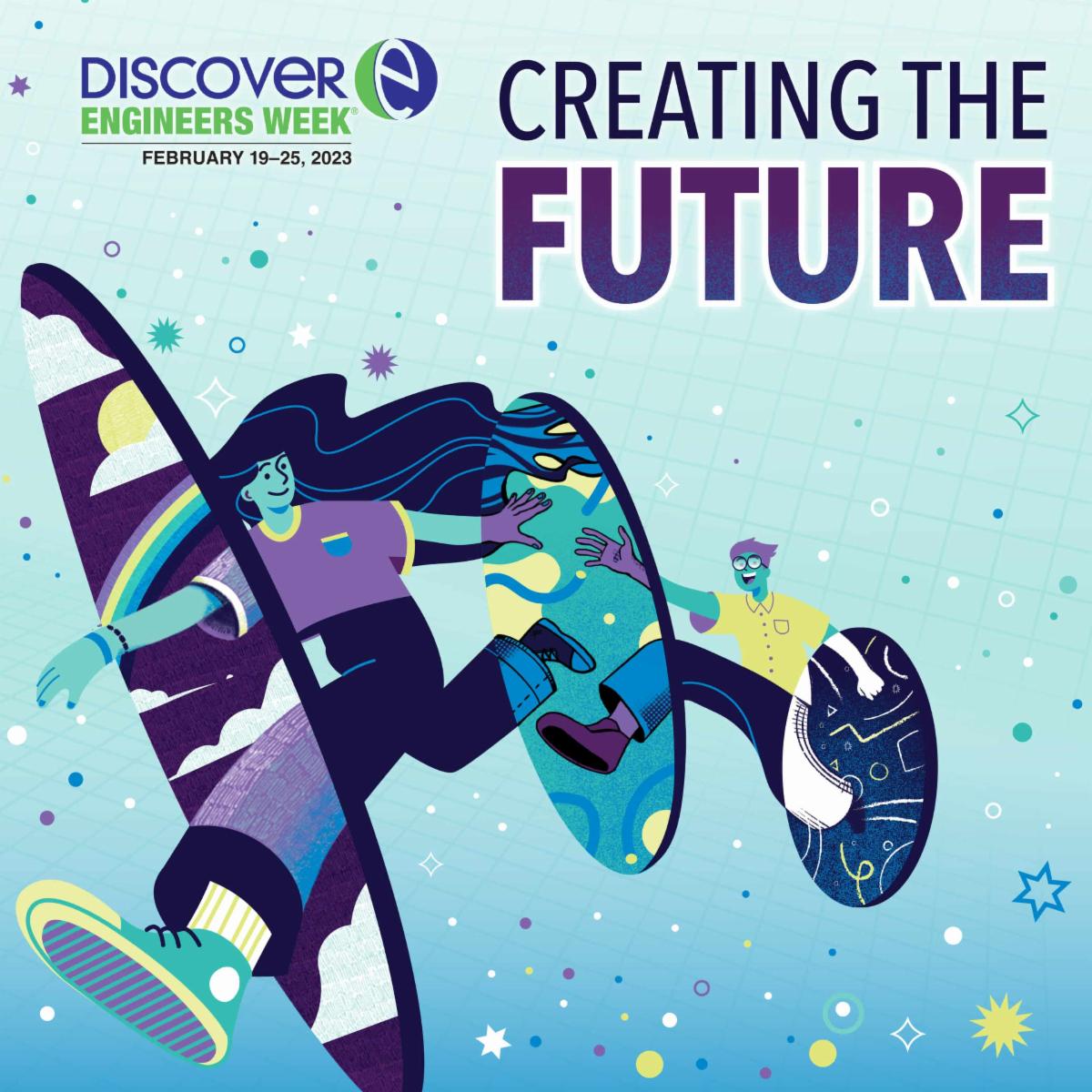Heneghan and Associates, P.C. (HA) is excited to celebrate all of the engineers who keep our society functioning. This year’s E-Week theme is “Creating the Future.” Our engineers are familiar with that! This week and every week, we’re celebrating the great work they do to improve our communities and create a better future for us all.
Studies show that students are more likely to explore careers in science, technology, engineering and mathematics (STEM) if they understand the opportunities and resources available to them. This newsletter aims to foster an interest in engineering by clarifying the role of an engineer and the ways that young people can thrive in this field.
Those of us at HA are happy to talk with you if you have any questions about what we do, our scholarships, or even if you just want to get to know an engineer and see how we work! Feel free to stop in during our office hours, or you can visit the rest of our website or call us at 618-498-6418.
What Does an Engineer Do?
Think about your community. When you walk through your town, you probably see buildings, houses, roads, hospitals, bridges and railroad tracks. Now think about what you can’t see, what’s under the ground: water lines, utility lines, telephone lines. Almost everything that a town needs to function requires an engineer.
Engineers work with other people in STEM to find new ways of doing things. They take the findings of scientists and come up with innovative, practical ways to apply these findings. Their goal is to improve how we live and work.
Engineers design the buildings we learn in and roads we drive on, but that’s just one example of how engineering is all around us. Some engineers design satellites that can help predict droughts and prepare communities for life-threatening weather events. Solar panels and wind farms are designed by engineers who are finding new ways to harness energy and fight climate change. In the biomedical field, engineers have developed devices that can measure patients’ heart rates, insulin levels and more and then transfer the data to their cell phones using Bluetooth. Robots can fight fires, cars can drive themselves, streetlights can decide when to turn on to conserve energy and protect our streets — all of these projects require engineers. Locally, HA is currently designing a water project that will help 35,000 people in our region gain access to clean water.
Engineers impact our society in ways we don’t even realize.
Should I Be an Engineer?
As long as the world turns, someone will be thinking of ways to improve it. Why shouldn’t that person be you? Engineers are constantly thinking ahead, planning out new systems and technologies to make the world work more efficiently — and help people, too. Their ultimate goal is to make our lives better.
Engineers work in all fields, including healthcare, agriculture, city planning, electronics, commerce and more. That’s why engineering is so appealing: You can do whatever you want with your career. Our society will always need engineers to find creative, groundbreaking solutions to people’s problems. If you want to change the world, engineering could be for you.
How Do I Become an Engineer?
The engineering field has a lot of variety, so it’s no surprise that the path to become an engineer is as customizable as the job itself. Most future engineers pursue a bachelor’s degree after high school. An engineering degree requires a lot of math and science, so brush up on those multiplication tables (and bring along your calculator).
After you graduate from college, you’ll then take the Fundamentals of Engineering exam. It sounds daunting, but once you pass, you’re officially known as an engineer-in-training — and the fun begins. Start work and hone your skills in whatever specialization you want! This is your chance to decide what kind of engineer you want to be and what industry you plan to work in. Eventually, you’ll ace the state licensure exam and officially be an engineer with all kinds of exciting engineering projects in your future.
The path to engineering can be difficult, but you never have to do it by yourself. Teamwork and communication are key aspects of engineering; you’ll have a team of people behind you, cheering you along and helping you to make the world a better place.

